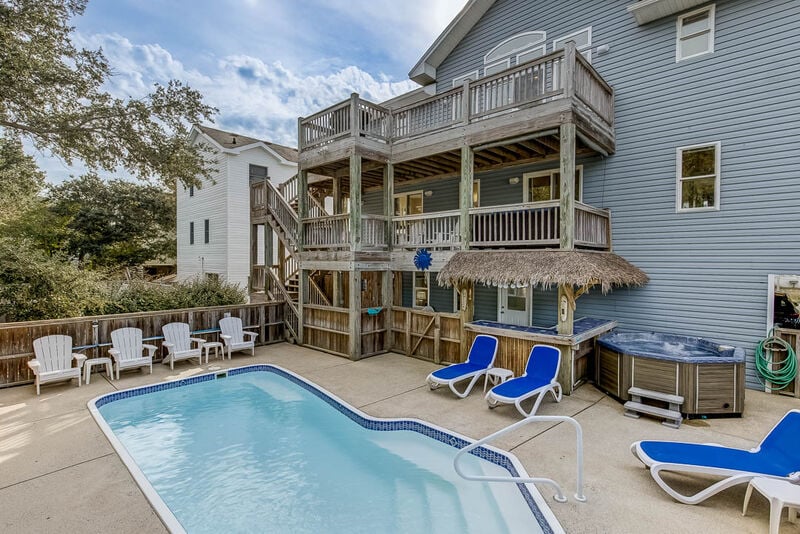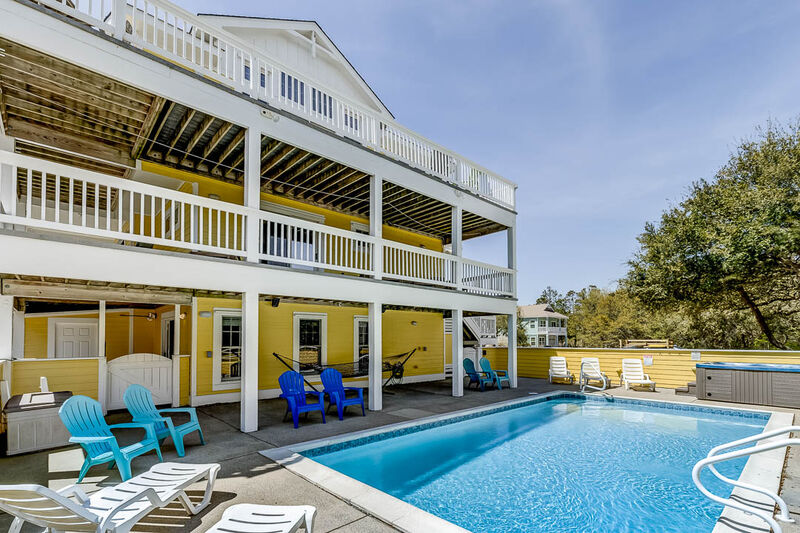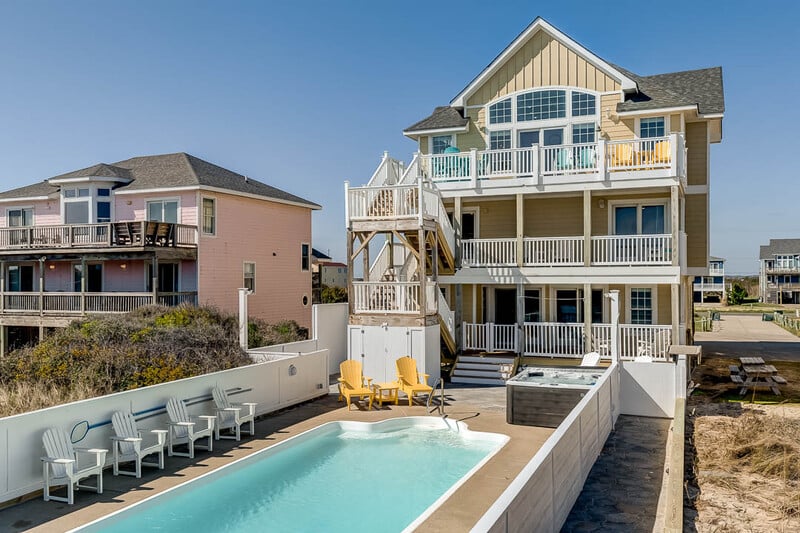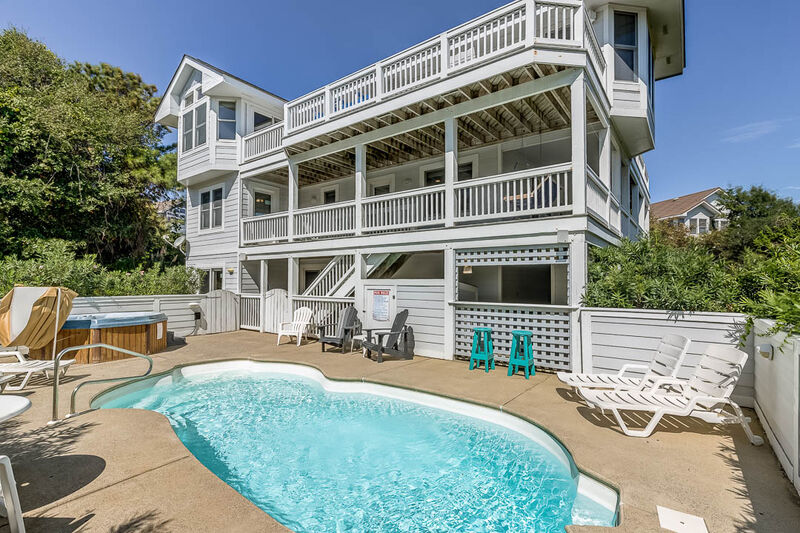
"It's hoi toide on the saind soide."
That may look and sound strange, but its meaning is simple:"It's high tide on the sound side."
What's more, it's a common expression in North Carolina's "DownEast" region, which includes parts of the picturesque Outer Banks villagesof Ocracoke and Wanchese.
Here some 150 residents still speak a colorful dialect that'sunlike anything you'll encounter anywhere else in America.
Known as "High Tider" ("Hoi Toider") or"the Ocracoke Brogue," this unique Old World idiom goes back toShakespearean times. To modern ears, it may sound like a Scots, Irish, orAustralian accent - or even like Britain's fabled West Country brogue,popularized in the BBC TV series Poldark.
But to the natives, it's just the way folks hereabouts havebeen speaking for hundreds of years.
The Legendary Heritage of Hardy Scots-English Seafarers
First explored in 1524, Ocracoke Island wasn't really settleduntil around 1750. Before then, it was the haunt of pirates, including EdwardTeach, the infamous Blackbeard. In fact, Teach met his death at Ocracoke onNovember 22, 1718, during a fierce battle with troops from Virginia.
From the mid-18th century onward, immigrants from England andScotland began settling Ocracoke and other nearby islands along Pamlico Sound. Separatedfrom the mainland, facing uniquely harsh conditions, these hardy souls eked outa difficult living as seafarers, fishermen, whalers, and boatbuilders. Forgenerations, they lived in remote isolation, preserving their distinctive dialect.
Then, in the 1950s, a bridge was built connecting OcracokeIsland to the mainland. Tourists began pouring into the Outer Banks.
At first, this threatened the survival of High Tider lingo.But soon the natives noticed that visitors actually liked the OcracokeBrogue. It became a selling point - a boon for local tourism. And, for thenatives themselves, it became a badge of identity and a point of local pride.
Therefore, longtime residents took pains to keep using theirage-old dialect. (Perhaps they even exaggerated it a bit for the benefit ofdelighted tourists!)
And so it is that you can still hear the Ocracoke Brogue tothis day.
At the same time, you'll find many residents - descendants ofthe original settlers - still plying the same venerable trades that sustainedtheir ancestors: fishing, shrimping, piloting, boat making, and so on.
Visit Ocracoke and see for yourself. You'll feel as if you'vestepped straight into a time warp - an unforgettable experience!
What to Listen For When You Visit
You'll know the High Tider dialect when you hear it!
For one thing, the vowels have a distinctive sound. Generally,long "i" sounds like "uh-ee" or "aw-ee," much asit sounded in Elizabethan English. In some cases, though, it sounds more like"oi." Thus "time" becomes "toime";"side" becomes "soide," etc.
At the same time, the vowels "ou" and"ow" sound more like "ai." So, for instance,"sound" becomes "saind."
And when the vowel "i" is followed by an"r," it sounds more like "ar": "Fire" becomes"far," and "tire" sounds more like "tar."
Unlike standard English, High Tider also has the rhotic"r" - that is, the letter "r" is pronounced even when it'sin the middle of a word, so "farm" sounds more like"farrr-um."
The grammar is different, too. High Tiders often insert"a-" before verbs ending in "-ing" - for example, "I'mgoin' a-fishing" or "she's a-chasin' the dog." Plus, they oftenuse "to" where most of us would use "at," as in: "Peteis to the store." They also use "weren't" where mainlanderswould use "wasn't": "Pete weren't there after all."
Then There's the Unique Vocabulary
As you stroll along the sound-side boardwalks, you're likelyto hear unfamiliar words such as:
- Mommuck (sometimes spelled mommick): to bother or disturb or just about wipe someone out. "That high wind has me mommucked." "I've been shrimpin' all night, and I'm mommucked."
- Pizer: a porch (probably derived from "piazza").
- Whopperjawed: off-kilter; not quite straight or true: "That boat sure is whopperjawed."
- Yethy: stale or bad smelling: "That five-day-old fish is yethy."
- Slick cam: serenely calm. Usually applied to sound-side waters when they are "slick" (flat; no waves) and "cam" (calm).
- O'cocker: a true born-and-bred native of Ocracoke.
- Quamished: sick to one's stomach. "I felt quamished after eating that fish."
- Buck: close friend or mate. "I'm having a beer with my bucks."
- Scud: to sail (or drive) very fast.
- Fladget: a piece of something.
- Drime: the rough equivalent of "yeah, riiiight!" Expresses skepticism and disbelief. "Drime, you landed that fish yourself?"
Natives even have a term for newcomers who have moved intothe area from other parts of America. They call them "dingbatters." (O'cockersinsist they mean this affectionately. Oh, sure, drime!)
How to Sound Like a High Tider
When you visit the Ocracoke area, you may want to blend rightin with the natives. If so, practice your Ocracoke Brogue ahead of time. Brushup on your vowels - say "fraish" instead of "fresh,""brain" instead of "brown," and so on. Plus, don't forgetto mention that you're "mommucked" when you're bothered or"quamished" when you're feeling queasy.
Gather the fam and go a-visiting soon. You'll sound like anO'cocker in no time!






